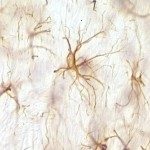Lien vers Pubmed [PMID] – 22753372
Lien DOI – 10.1128/IAI.00072-12
Infect Immun 2012 Aug; 80(8): 2963-70
Recent studies suggest shared pathogenic pathways during malaria and allergy. Indeed, IgE, histamine, and the parasite-derived Plasmodium falciparum histamine-releasing factor translationally controlled tumor protein (PfTCTP) can be found at high levels in serum from patients experiencing malaria, but their relationship with basophil activation remains unknown. We recruited P. falciparum-infected patients in Senegal with mild malaria (MM; n = 19) or severe malaria (SM; n = 9) symptoms and healthy controls (HC; n = 38). Levels of serum IgE, PfTCTP, and IgG antibodies against PfTCTP were determined by enzyme-linked immunosorbent assays (ELISA). Basophil reactivities to IgE-dependent and -independent stimulations were measured ex vivo using fresh blood by looking at the expression level of the basophil activation marker CD203c with flow cytometry. Unstimulated basophils from MM had significantly lower levels of CD203c expression compared to those from HC and SM. After normalization on this baseline level, basophils from SM showed an enhanced reactivity to calcimycin (A23187) and hemozoin. Although SM reached higher median levels of activation after anti-IgE stimulation, great interindividual differences did not allow the results to reach statistical significance. When primed with recombinant TCTP before anti-IgE, qualitative differences in terms of a better ability to control excessive activation could be described for SM. IgE levels were very high in malaria patients, but concentrations in MM and SM were similar and were not associated with basophil responses, which demonstrates that the presence of IgE alone cannot explain the various basophil reactivities. Indeed, PfTCTP could be detected in 32% of patients, with higher concentrations for SM. These PfTCTP-positive patients displayed significantly higher basophil reactivities to any stimulus. Moreover, the absence of anti-PfTCTP IgG was associated with higher responses in SM but not MM. Our results show an association between basophil reactivity and malaria severity and suggest a pathogenic role for plasmodial PfTCTP in the induction of this allergy-like mechanism.




